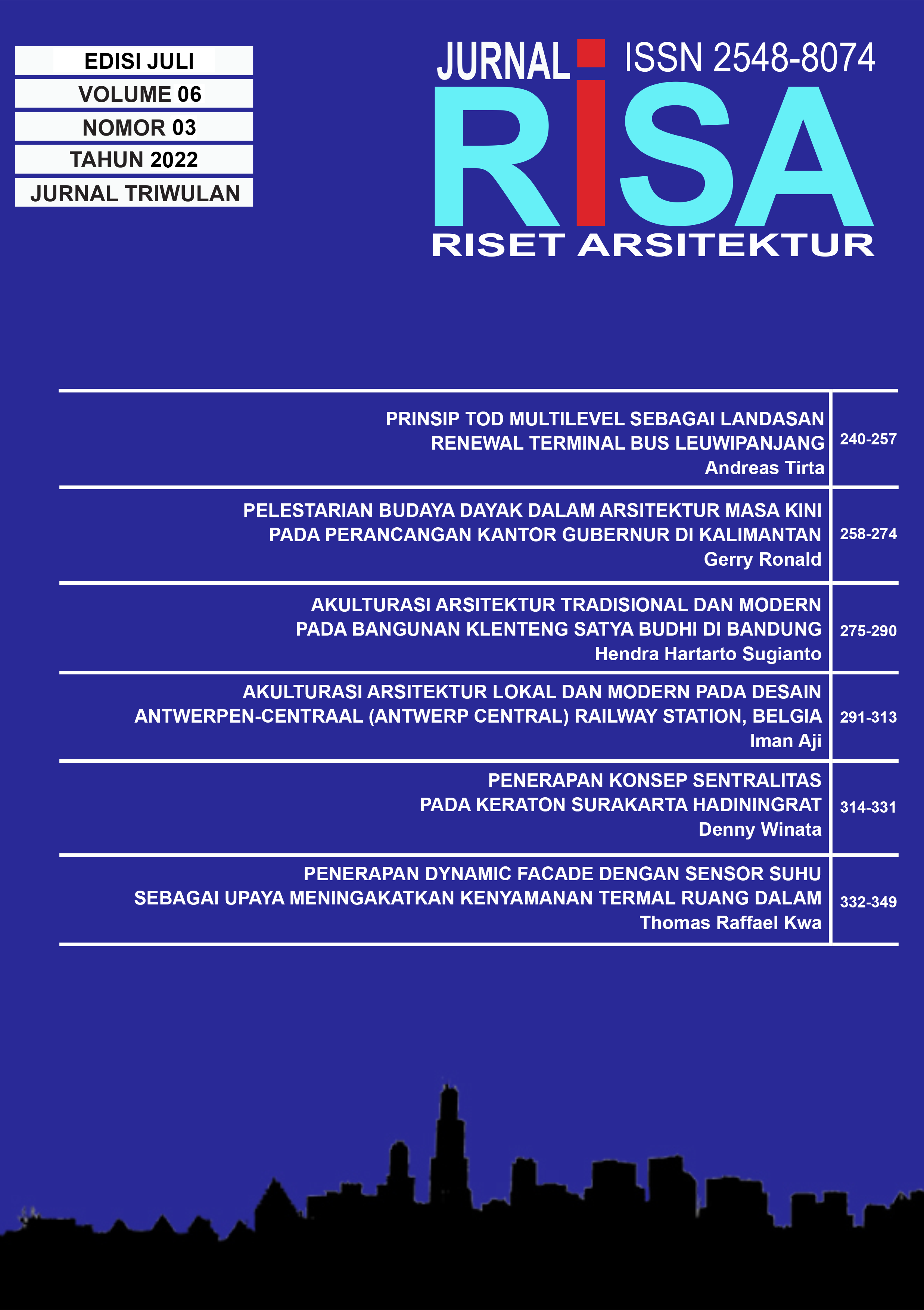IMPLEMENTATION OF DYNAMIC FACADE USING TEMPERATURE SENSOR TO INCREASE INDOOR THERMAL COMFORT
DOI:
https://doi.org/10.26593/risa.v6i03.5946.332-349Abstract
Abstract - Facade is one of the elements in architecture that has a role in the thermal comfort of spaces in buildings. Facades have a variety of shapes and types that have their respective roles. As the development of facade technology can be developed with the help of mechanical engineering, industrial, and computer engineering. One of them is the dynamic facade of the Al Bahar building, Abu Dhabi, which uses technology such as computer programming to regulate the size of the facade's opening to the climate which is read by heat sensors which has the effect of reducing heat on the building's interior and reducing energy for artificial ventilation / air conditioning purposes.The shape of the triangle folds that are designed can close and open fully for visual interest in the inner space. It is estimated that the facade is able to reduce more than 50 percent of incoming heat and reduce the need for air conditioning in buildings.
The purpose of this research is to study the workings of dynamic facades that use computer technology and also examine effective materials for use in Indonesia's tropical climate.
This research used quantitative and experimental methods of facade mockup design. An experiment was made of facade mockups that were able to move similarly to the movements of the facade of Mashrabiya, Al Bahar, which required programs and computer coding to support movements that were adaptive to the surrounding climate.
Keywords: adaptive, dynamic, facade, thermal
Downloads
Published
Issue
Section
License
Copyright (c) 2022 Thomas Raffael Kwa

This work is licensed under a Creative Commons Attribution-NonCommercial-ShareAlike 4.0 International License.












